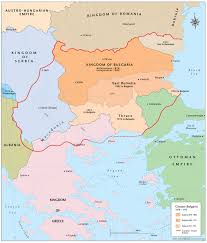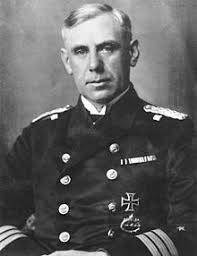A Concise History of Bulgaria (2d ed) (2005) by Richard Crampton.
Goodreads meta-data is 287 pages, rate 3.71 by 114 litizens.
Genre: History
Verdict: Be glad, be very glad….

Bulgars are not Slavs and they were not always all Christians either. One early Bulgar ruler negotiated with the Roman Pontiff and the Byzantine Prelate for the best terms to convert the kingdom to Christianity. This episode seems to prefigure much of the following history for the Bulgars, dealing with internal divisions between Bulgars and Slavs, while holding off two powerful neighbours. By the way he got the best deal from Constantinople though later it was reneged. That, too, recurred: Deal followed by no deal.
When the Bulgarian Empire waxed it needed a common language for cadastral lists, i.e., tax collection by another name. Cyrillic script was developed within its borders for that purpose. At times the Bulgarian lands reached from the Black Sea to the Adriatic Sea.
The bigger it got, the bigger target it became for Magyars, Serbs, Russians, Greeks (inevitably Byzantine tax collectors), and finally the Ottomans who were less inclined to negotiate than the Byzantines had been. Later enemies of the Ottomans saw in the Bulgars an ally.
Bulgaria and Bulgarians inevitably were sucked into the recurrent wars between Russia and Turkey, each side quick to take revenge on the smaller, third party. Bulgarians long saw Russians, because of Christianity, as saviours. In 1878 Russians and Ottomans agreed to permit a Bulgarian state, but later the same year the Treaty of Berlin pared down its territory to weaken it. The result was to dispossess many ethnic Bulgarians whose cause became the main foreign policy target for successive Bulgarian regimes, justifying the Serbian war (1908), the First Balkan War (1912), and the Second Balkan War (1913), and World War I allied with Germany and with the ancient enemy, the Ottomans in return from promises of new borders that would encompass all Bulgarians (and some others besides).

An Ottoman army officer in the First Balkan War, Kemal Ataturk, envied Bulgarians their unity, nationalism, and language. While the Ottoman Empire was gigantic in comparison, it was also disorganised, dispirited, and disunited. There was nearly nothing in common to rally the troops. Later when he became the philosopher-king of Turkey, he created a Turkish language and a panoply of national symbols to match those he had seen among Bulgars.
In the Great War Bulgarian troops held off an Allied Expeditionary Force operating from Greece for years, despite being outnumbered and outgunned at times. But the human and material cost was considerable with dead, wounded, and displaced refugees. In the Treaty of Versailles it lost considerable ground and several hundred thousand ethnic Bulgars migrated into its new, reduced borders, causing many dislocations. Tsar Boris III initiated a long period of authoritarian rule in 1918.
With the intrusion of German hegemony in the Balkans, Boris III entered into a passive alliance with the Nazi regime. In return for this association Bulgaria was to occupy Macedonia, lately part of Yugoslavia, and Thrace, taken from Greece, and there was a complicated arrangement with Rumania, too. True many residents of these territories were ethnic Bulgars, but not all. These early gains were popular until resistance in them occurred and casualty lists arrived. Boris insisted that the Bulgarian army, undertrained and ill equiped with few capable officers, was totally committed in these territories, and had to remain as a buffer and deterrent to any attack from Greece or Turkey. Ergo Bulgaria did not take part in the war on the Soviet Union, though German troops and supplies for the East passed through its lands. Pressure from the Germans led to anti-Jewish measures but Bulgaria made little effort to enforce them. Also to placate Hitler it did declare war on England and the USA, a symbolic gesture that led the Allies to seize Bulgarian assets, few as they were, and to bomb Sofia and elsewhere. It never did declare war on the Soviet Union despite increasing German pressure.
In the 1930s there had been parliamentary elections in Bulgaria in which voting was compulsory for men and optional for married women. These affairs were carefully managed, administered, and manipulated to get the result Boris desired (as in Florida and Texas), but nonetheless they occurred and sometimes threw up surprises. Remember it was not until 1979 that woman got the vote in enlightened, Western, and democratic Switzerland.

In August 1943 upon returning from a meeting with Hitler, who raged at him about deporting Jews more than fighting the Soviets, at age 49 Boris died. Rumours of poison soon circulated. He was succeeded by his six year old son and a coup d’état followed. Thence came a succession of governments, some self-appointed, and efforts to steer between the Soviets and Nazis, pleasing neither. Bulgarian Jews who were Bulgarian citizens in Bulgaria had the best chances of survival, but not the Bulgarian Jews who were not Bulgarian citizens even if in Bulgaria, still less those from areas outside the map lines of Bulgaria at the time. It is no doubt a more complicated and messy story. In latter 1944 the Bulgarian government dominated by communists changed sides and declared war on Germany in a desperate effort to assuage the all-conquering Soviets. Italy’s 1943 switch saved it from much Allied retribution but the Bulgarians had no such luck with the Soviets who used the Bulgarian Army in the remainder of the war as cannon fodder and then in the subsequent peace punished Bulgaria as a defeated enemy.
While there were plenty of home-grown anti-semites, Germanophiles, and fascists in Bulgaria in these pages they never seemed to have much influence on the government or army. Don’t know quite why even after reading this book, when such types were so influential in other places.
The Western allies left Eastern Europe to the Soviets and by 1947 Bulgarian was a one-party state with a monotone press. The repression that followed was, well, repressive, violent, erratic, relentless…. Bulgaria became more Red than Moscow most of the time. When regime change came to Moscow, Bulgaria’s north star was gone. The incredulous response of Bulgarian communists to the indifference of Gorbachev’s Russia would be amusing were it not so destructive. As long as Bulgaria was Red, Moscow had subsidised it, but with Gorbachev the subsidies stopped…abruptly. The result was a disaster that got worse over the following years of the New World Disorder.
With Russia indifferent, the only choice was the West, i.e., the EU and NATO, and Bulgaria has tried to fit into both, but, well, the rule of law is one problem it has in common with Romania (and now Washington DC).
The book ends with a nice reflection on the vexed history of this crossroads, that inevitably is at the margins of either East or West.

It seems to have been my week in the Balkans. On the night table is Robin Bailes’s The Immortal Dracula (2020) set in contemporary Transylvania and on the day table is this title.
Bulgaria has tried to manage two large, aggressive neighbours in Germany and the Russia. When I read about Finland’s efforts during World War II to work with but not join the Nazi Axis powers, there were a few allusions to Bulgaria’s efforts to ally with Nazi Germany on its own terms. How did that work? Time to find out. See above.







































